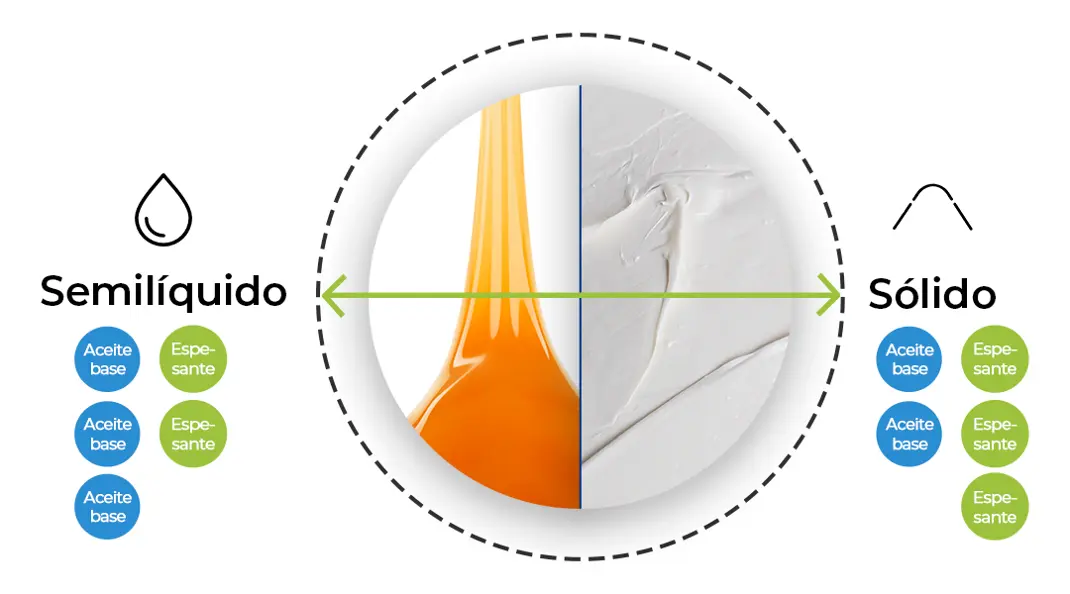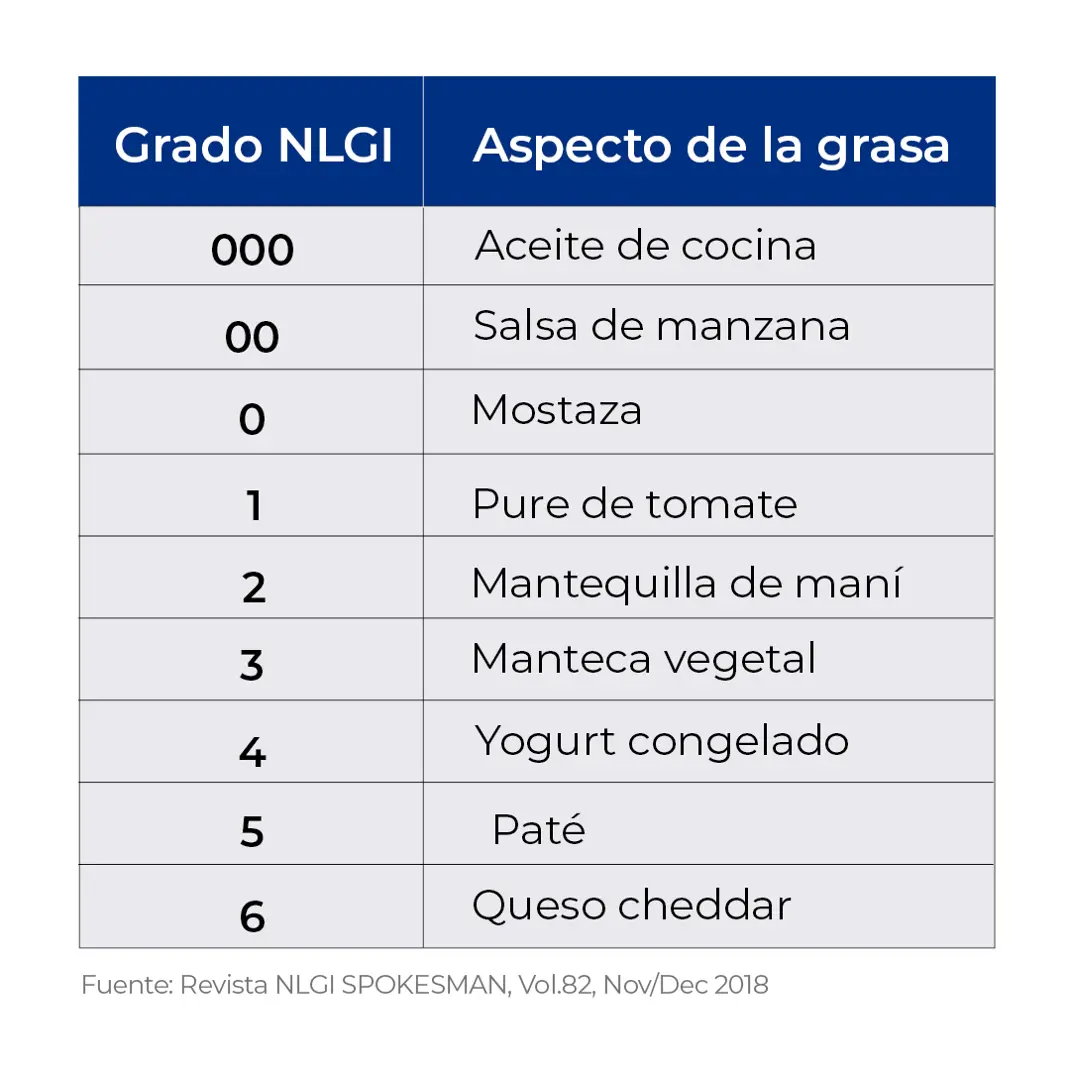The NLGI Grade in Krytox™ Greases for Mechanical Keyboards
The NLGI Grade in Krytox™ Greases for Mechanical Keyboards
Have you been searching for Krytox™ GPL 205G0 to lubricate your mechanical keyboard? Chances are you’ve also heard others in the community mention using Krytox™ GPL 205G2 or Krytox™ GPL 105—either on their own or in combination.
In this article, we’ll help clarify what that “grade” means in greases so you can identify which one to use—or even carry out your own testing.
What does the NLGI grade in grease mean?
Lubricating greases are primarily composed of base oil, which provides the lubricating film between surfaces in relative motion, and a thickener, which acts as a matrix to keep the oil in place.
The proportion between these two components determines the grease’s firmness: increasing the thickener results in a stiffer consistency, while more base oil creates a softer one.
Therefore, the NLGI grade reflects the ratio between the base oil and the thickener, which ultimately determines the grease's consistency—ranging from semi-fluid to solid.

The National Lubricating Grease Institute (NLGI) defines grease consistency grades on a scale from 000 to 6, based on the ASTM D217 penetration test (developed by the American Society for Testing and Materials).
In the table below, we show common materials you can compare to each NLGI grade to better understand the grease consistency.

Why Lubricate a Mechanical Keyboard?
Unpleasant noises and tactile feedback are often caused by friction generated when two surfaces move against each other. This is the case with mechanical keyboards: lack of lubrication in components like switches and stabilizers can shorten their lifespan, cause annoying noises, or make key presses feel rough or inconsistent.
When lubricating these mechanical elements, it’s important to consider the proper grease grade—both over-lubrication and under-lubrication can be counterproductive and may affect the return action of the keys.
What Kind of Lubricant Does a Mechanical Keyboard Need?
Lubricating a mechanical keyboard requires a specialized lubricant, as keyboard components can be sensitive to various oil formulations—especially hydrocarbon-based lubricants, which may degrade plastic and rubber parts.
Another key factor is migration: if the lubricant tends to evaporate easily or drips, it could spread to unintended areas, such as keycaps, leaving an oily residue where none is desired.
For these reasons, Krytox™ lubricants are highly recommended, as they offer excellent performance for this application. Their physico-chemical stability helps them stay exactly where applied, without degrading keyboard materials.
Now that you understand more about grease consistency, you’ll be better equipped to choose the right Krytox™ lubricant—or even try custom blends based on your preferences.
In Mexico, Krytox™ GPL 205G0 is only sold in 500-gram containers, and you can find it with us. We are an authorized distributor, and we also carry Krytox™ GPL 205G2 and Krytox™ GPL 105 in 57-gram jars, available for immediate delivery.
If you need more information, use the link at the end of this article. We're here to help!
Referencias:
Distribuidores autorizados: https://bit.ly/2RsyxMl
Discover how we can help you tackle and solve your industrial lubrication challenges.